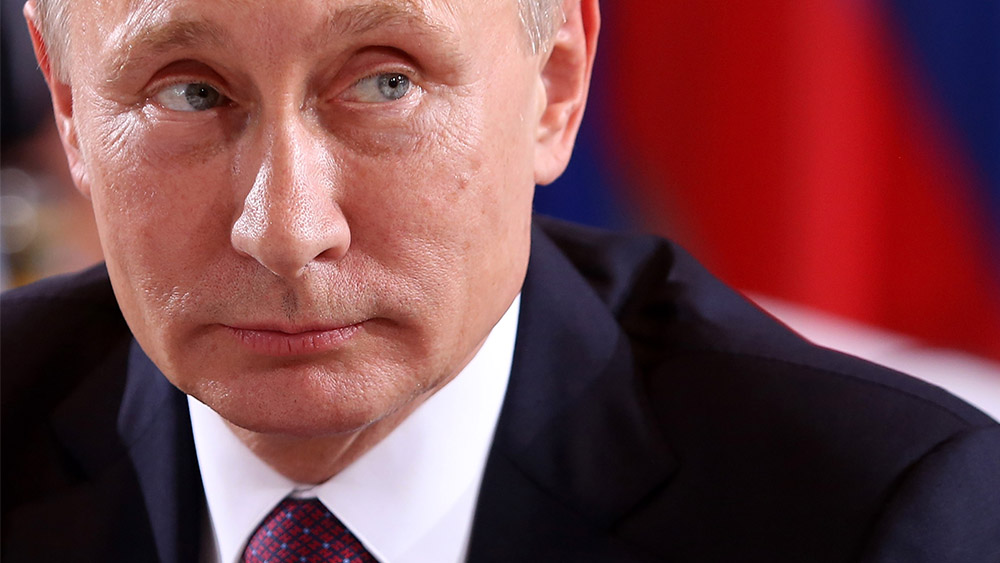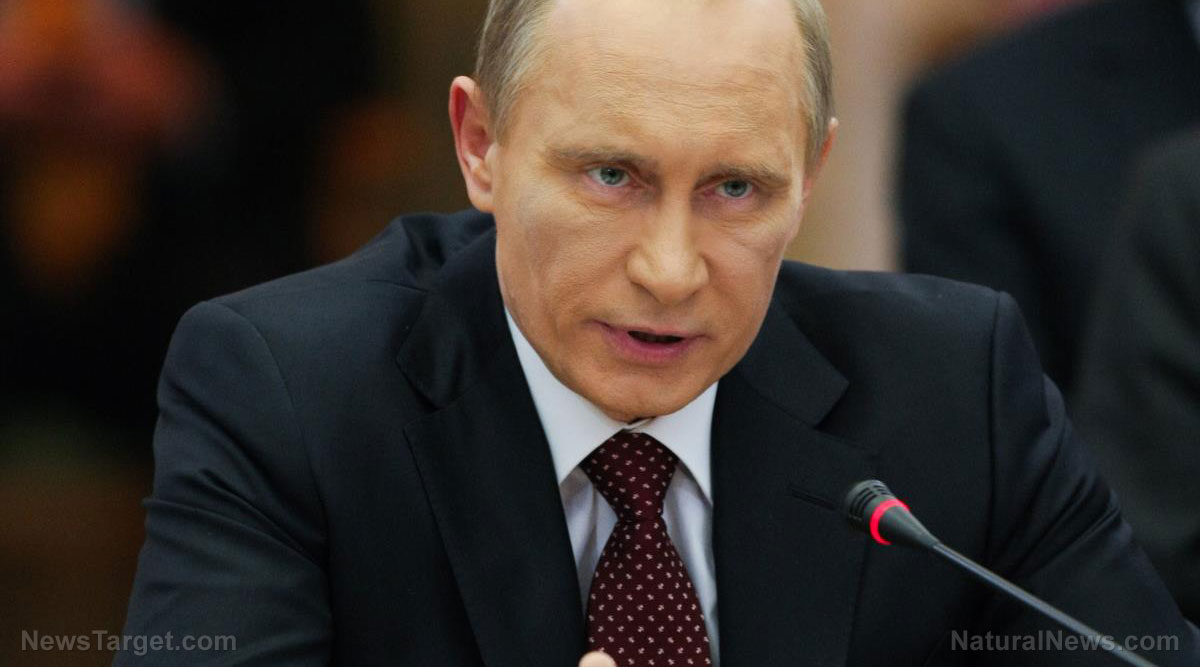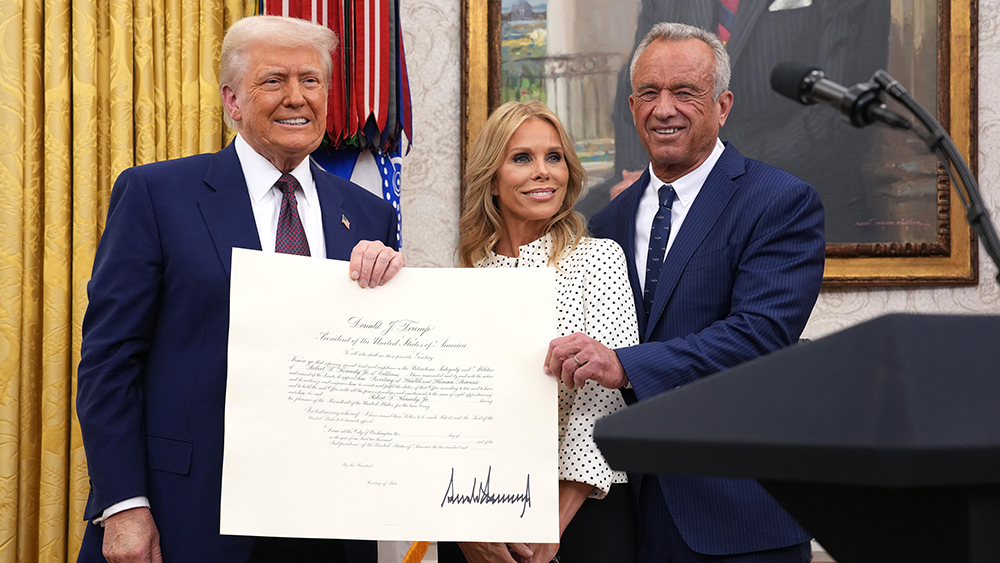Trump reveals Putin warned of imminent retaliation against Ukraine in 75-minute call
06/05/2025 / By Cassie B.

- Russian President Vladimir Putin warned of military retaliation against Ukraine following drone strikes on Russian airfields, escalating tensions in the ongoing war.
- Trump disclosed details of a 75-minute call with Putin in which they discussed Iran’s nuclear program, with Putin offering to assist in negotiations in a move criticized by U.S. lawmakers.
- Ukrainian drone attacks inflicted significant damage on Russian airbases, provoking Moscow’s threat of further strikes, including potential civilian targets.
- Trump positioned himself as a potential peacemaker but admitted the call would not bring immediate peace, as Ukraine rejects Russian ceasefire proposals as ultimatums.
- Critics warn Trump’s direct engagement with adversarial leaders risks legitimizing autocrats and undermining traditional U.S. alliances.
President Donald Trump revealed Wednesday that Russian President Vladimir Putin warned of an impending military retaliation against Ukraine following recent drone strikes on Russian airfields.
The 75-minute phone call, disclosed by Trump on Truth Social, underscored escalating tensions in Eastern Europe and the reality that peace remains elusive. The conversation also touched on Iran’s nuclear ambitions, with Putin offering to assist in negotiations in a move critics argue risks legitimizing Moscow’s influence over global security matters.
The disclosure comes amid heightened volatility in the Russia-Ukraine war, which has now dragged on for over three years with no end in sight. Ukrainian forces recently launched bold drone attacks targeting Russian airbases housing nuclear-capable bombers, inflicting significant damage and provoking Moscow’s wrath. Trump, who has long positioned himself as a potential peacemaker, admitted the call was “good” but conceded it would not yield “immediate peace.”
Putin’s retaliation threat looms
Trump’s post on Truth Social quoted Putin directly, stating the Russian leader “did say, and very strongly, that he will have to respond to the recent attack on the airfields.” The strikes, which spanned five Russian time zones, reportedly destroyed or damaged dozens of military aircraft, dealing a humiliating blow to Moscow’s military prestige. Putin’s vow to retaliate raises fears of further escalation, including potential strikes on Ukrainian civilian infrastructure in a tactic Russia has employed repeatedly throughout the war.
Beyond Ukraine, the call delved into Iran’s nuclear program, with Trump asserting he and Putin agreed Tehran must not obtain nuclear weapons. “I stated to President Putin that Iran cannot have a nuclear weapon and, on this, I believe that we were in agreement. President Putin suggested that he will participate in the discussions with Iran and that he could, perhaps, be helpful in getting this brought to a rapid conclusion,” Trump wrote.
The president accused Iran of “slow walking” negotiations and demanded a “definitive answer” soon.
The prospect of Russian mediation drew sharp rebukes from U.S. lawmakers. Sen. Mark Warner (D-VA), chair of the Senate Intelligence Committee, called it “the total opposite of traditional U.S. policy.” Sen. Richard Blumenthal (D-CT) was blunter: “I wouldn’t trust Putin to mediate or negotiate anything on my behalf.”
The discussion highlights Trump’s unconventional foreign policy playbook, which prioritizes direct engagement with adversarial leaders over traditional alliances. While supporters argue this fosters pragmatic deal-making, detractors warn it emboldens autocrats and undermines democratic solidarity.
A war with no end in sight
The call occurred against a backdrop of stalled peace efforts. Ukrainian President Volodymyr Zelensky dismissed recent Russian ceasefire proposals as “an ultimatum” and a “political performance.” Meanwhile, Moscow continues incremental advances in eastern Ukraine, capturing villages to create a buffer zone along the border.
Trump has repeatedly claimed he could broker peace, citing his rapport with both leaders. However, his recent remarks, including calling Zelensky a “dictator” and praising Putin’s strength, have fueled skepticism. With Putin now threatening retaliation and Iran’s nuclear ambitions unresolved, the path to de-escalation appears challenging.
Sources for this article include:
Submit a correction >>
Tagged Under:
chaos, dangerous, Putin, Russia, Trump, Ukraine, violence, WWIII
This article may contain statements that reflect the opinion of the author
RECENT NEWS & ARTICLES
COPYRIGHT © 2019 Dangerous.News
All content posted on this site is protected under Free Speech. Dangerous.News is not responsible for content written by contributing authors. The information on this site is provided for educational and entertainment purposes only. It is not intended as a substitute for professional advice of any kind. Dangerous.News assumes no responsibility for the use or misuse of this material. All trademarks, registered trademarks and service marks mentioned on this site are the property of their respective owners.



















